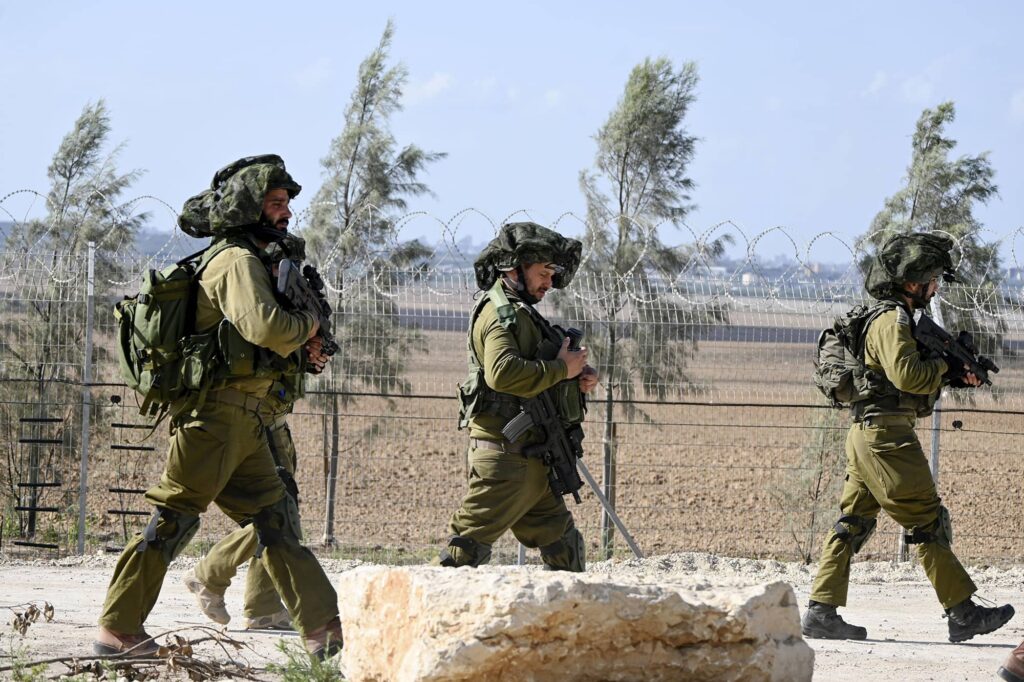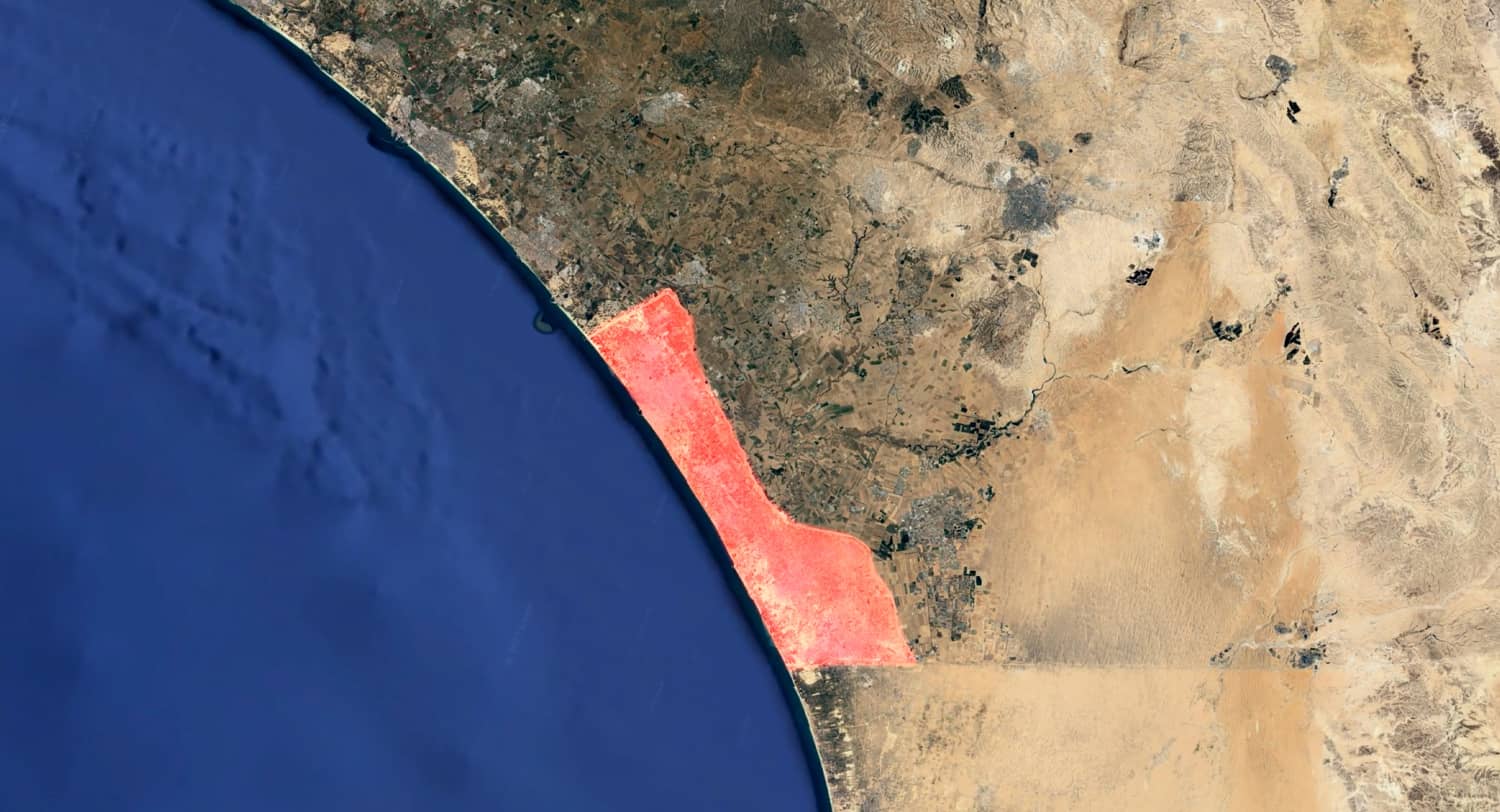The longer Israel holds off entering the Gaza Strip, the greater will be the number of voices around the world calling upon Israel not to enter at all. The arguments against an incursion are depressingly familiar. There will be those who will counsel against anger and revenge and for “proportionality.” And there will be those who ask whether the government of Israel has any idea as to how Gaza’s future might take shape once it has achieved its two primary goals, namely, rescuing the hostages and decapitating Hamas.
“Proportionality” in the current war is meaningless; there is no proportion to be applied against the rapes, beheadings and kidnappings that Hamas perpetrated against innocent people. Warnings about anger and revenge are also somewhat beside the point. When the United States attacked the Taliban-led Afghanistan in angry response to the 9/11 attacks, Washington had the support not only of its NATO allies, who for the first time ever invoked Article 5 as a threat against them all, but of many other states as well, most notably including Vladimir Putin’s Russia.
Rather, it is the concerns with postwar Gaza that Israel must take to heart, and it must do so quickly. It is not enough to rescue hostages or eliminate the Hamas leadership. There needs to be a plan to resuscitate Gaza, to give its people hope, and to prevent another Hamas-like organization from seizing power and continuing to seek the destruction of the Jewish state.
No actionable plan for the aftermath of the war has as yet come forth from Jerusalem. There is some talk of cutting off all intercourse between Gaza and Israel, preventing Gazans from working inside Israel because some workers may have provided Hamas with specific Israeli targets, including private addresses. Yet for Israel to implement a total cut-off would be self-defeating. It would deprive many ordinary Palestinians of the decent jobs they hold in the Jewish state, workers who would certainly form the core of those who are willing to live in peace alongside it. Indeed, it is not at all clear whether those Gazans who provided information to Hamas did so only because their families were threatened if they did not meet its demands.
What then might Israel do once it has accomplished its primary military objectives?
To begin with, the government should recognize that Israel cannot offload all responsibility for Gaza’s future onto any other state. At the same time Israel cannot on its own formulate, much less implement, a plan to rebuild a post-Hamas Gaza. It will have to be part of a coalition—what the leading experts at the Washington Institute for Near Eastern Policy have termed a “consortium” that sets about creating a viable institutional basis for managing the two million souls who live in the Gaza Strip.
America’s initial experience in Iraq provides some lessons on how not to go about creating a new Gaza. In contrast with its attack on the Taliban, America did not lash out at Iraq in anger. Realists like Brent Scowcroft, who helped lead the team that defeated Saddam in the First Gulf War of 1991, argued that there was no real basis for attacking the dictator a second time just over a decade later, and presciently warned of the consequences of doing so. Having launched its invasion, and defeated Saddam, Washington erroneously appointed a civilian, Paul Bremer, who had no real experience in the region, to lead a Coalition Provisional Authority. The Authority consisted of representatives from several states, but Americans dominated—and many of them had as little experience of the Middle East as Bremer. Those initial missteps led to chaos, civil war and hundreds of thousands of Iraqi deaths.
Once the Israeli operation ends, Gaza will certainly need a governing authority to maintain order while a new Palestinian leadership comes into being. That authority should initially be military, and should be neither American nor Israeli. Nor should it be a United Nations force; that organization has not proved itself capable of managing anything more than minor military crises and is deeply distrusted by the Israelis. Instead, military leadership should come from Britain, one of the EU states, or indeed from the EU itself, with perhaps France taking the EU lead. Both Paris and London have been notable in supporting Israel’s right to defend itself and both bring deep experience of the region.

The objective of the temporary military government would be to prevent chaos. After a relatively brief period, say six months and no more than a year, it should hand the reins of government to Palestinians who have no affiliation with Hamas, but may have close ties to, or even represent, the Palestinian Authority.
At the same time, a consortium of states, to include not only states that have formal relations with Israel, that is, Egypt, Jordan and the Abraham Accord states, as the Washington Institute recommends, but those that have supported Palestine in the past, namely Qatar and Saudi Arabia, should join with Israel to undertake the rebuilding of Gaza. This would involve recruiting Palestinian technocrats from both Gaza and the West Bank, to develop civil and governmental institutions that can serve the people. The wealthier members of the consortium, the Saudis, Qataris, Emiratis would furnish the massive financial aid that reconstruction will require. The EU and the United States could provide support both for institution building and in the financial realm, but neither should take the lead. Gaza must be first and foremost a regional project.
None of the foregoing will be feasible, however, if Jerusalem continues to refuse to countenance the vision of a functioning Palestinian state that comes into being alongside Israel. In this regard the United States can and should play a dominant role. It must forcefully push Jerusalem to end settlement expansion; it should formulate plans for financing the relocation of the relatively small minority of settlers living outside the West Bank wall, and it should help to identify land swaps to compensate for the area between the wall and the Green Line.
While it is true that Israel offered the Palestinians a state of their own on multiple occasions with the PA leadership refusing to negotiate on the basis of the Israeli offer, the aftermath of the Gaza war should provide yet another opportunity for the two sides to reach a peaceful resolution to a conflict that otherwise will never end. The consortium of states helping to restore Gaza could play a major role in bringing the Palestinians to the negotiating table. In Israel, the stage may be set after the war for a unity government that is ready to talk seriously to Palestinians about a common future for both peoples.
Many years ago, strategist Carl von Clausewitz wrote, “war is a mere continuation of policy by other means…War is not merely a political act, but also a real political instrument.” When the guns finally fall silent, it is crucial that the policy objectives of the Gaza war yield a political outcome that will ensure that those guns remain silent for many years to come.

